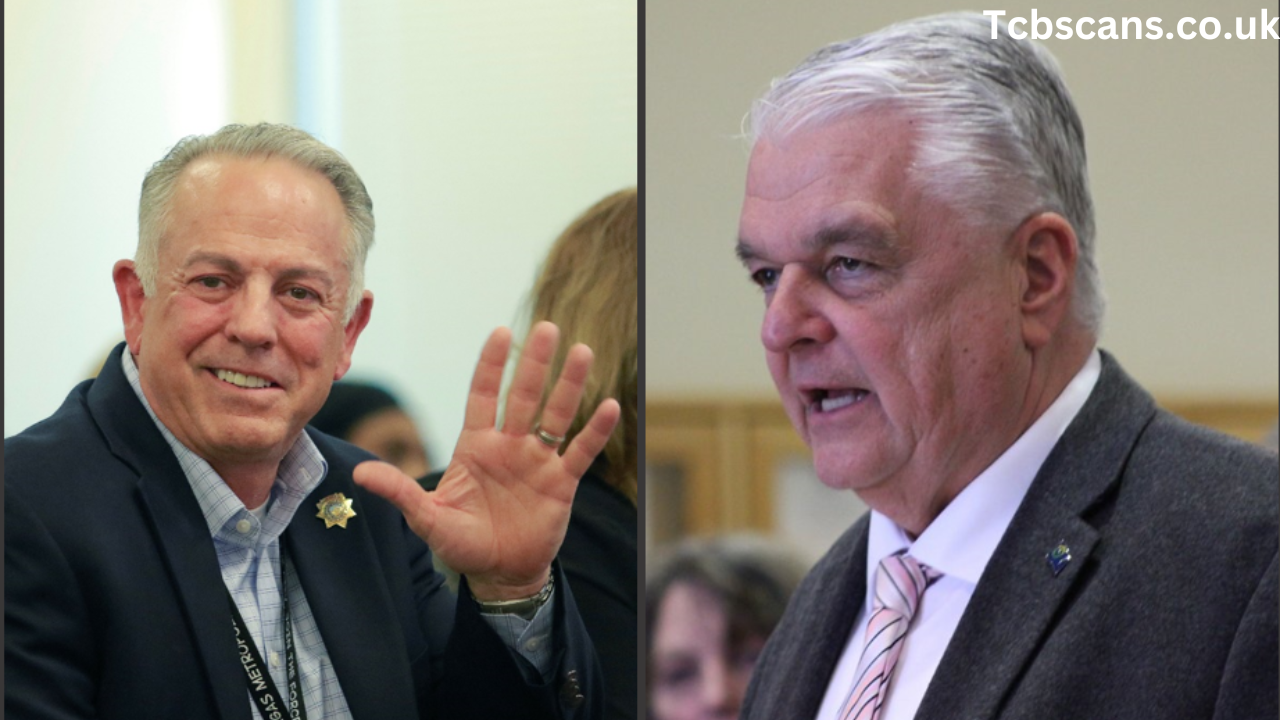A recent incident involving a threat against Governor Steve Sisolak has drawn widespread attention. The threat, originating from Massachusetts, highlights the increasing dangers faced by public officials in today’s polarized political climate. This article examines the details of the case, the response from law enforcement, and its broader implications for public safety and political discourse.
Details of the Threat
An individual in Massachusetts allegedly issued a direct threat against Nevada Governor Steve Sisolak. The threat was reportedly made via [specific medium, e.g., social media, email, or other communication platforms]. While the exact motive remains under investigation, initial reports suggest that it may be linked to [specific policies or actions by the governor]. Authorities acted swiftly due to the seriousness of the language and its implications for public safety.
Response from Law Enforcement
Law enforcement agencies in Massachusetts and Nevada worked in close collaboration to address the threat. The coordinated response involved [specific agencies, such as the FBI, state police, or local authorities]. As a result, the suspect was [current status, such as apprehended, charged, or under investigation]. This swift action underscores the importance of inter-state cooperation in handling threats against public officials.
Governor Sisolak’s Statement
Governor Steve Sisolak released a public statement condemning acts of violence and intimidation. He expressed gratitude to law enforcement for their prompt action and reaffirmed his dedication to serving the people of Nevada. The governor’s statement emphasized the need for civility in political discourse and highlighted the risks faced by leaders in the current climate.
Public Reactions and Political Implications
The incident has sparked significant public and political reactions:
- Public Concern: Citizens voiced alarm over the increasing threats faced by elected officials, calling for better protective measures.
- Bipartisan Condemnation: Political leaders across party lines united in denouncing the threat, emphasizing the importance of maintaining respect and safety in governance.
- Implications: This case reflects a troubling trend of escalating hostility in politics, underscoring the need for collective efforts to address polarization.
Background on Governor Sisolak
Steve Sisolak has served as Nevada’s governor since 2019. He is known for his leadership during pivotal moments, such as his [specific policies, e.g., handling of the COVID-19 pandemic or economic initiatives]. While his actions have drawn both support and criticism, threats against him signify an unacceptable level of hostility in political environments.
Legal Implications and Precedents
The suspect faces significant legal consequences under laws designed to protect public officials. These laws mandate strict penalties for threats, including [specific punishments, such as imprisonment or fines]. Previous cases involving similar threats have resulted in severe outcomes, reinforcing the zero-tolerance approach toward such actions. The legal process in this case will likely serve as a deterrent for future incidents.
How to Combat Threats Against Public Officials
Ensuring the safety of public officials requires a proactive and comprehensive approach:
- Enhanced Security Measures: Implementing stricter safety protocols for officials and their families.
- Social Media Monitoring: Increasing oversight of online platforms to identify and address threats early.
- Promoting Civility: Encouraging respectful political dialogue to reduce animosity and prevent conflicts.
These steps are vital for preserving democratic institutions and protecting those who dedicate their lives to public service.
Conclusion
The threat against Governor Steve Sisolak serves as a stark reminder of the challenges faced by public officials in an increasingly divided society. By addressing the immediate incident and taking proactive measures, authorities and citizens alike can work towards creating a safer and more respectful political environment. Protecting elected leaders is not just a matter of security but a cornerstone of a stable and functioning democracy.
